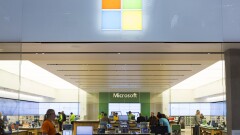The concept of Smart Cities — which use mobile payments, global positioning and related technology to streamline parking, transit, building access and traffic — is deeply intertwined with the development of payments technology and regulation.
Certain projects that are underway today seek to tap into consumer habits to reconsider the way they handle government payments, ranging from utility bills to transit fare. In many cases, these projects intersect efforts by retailers to update their stores with modern technology.
John Adams contributed reporting to this story.












